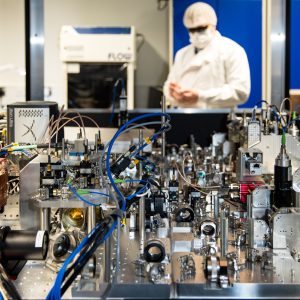
Finland has invested in its second quantum computer, a superconducting machine built by IQM. Set to be housed at the state-owned VTT Technical Research Centre, it will have 20 qubits of quantum processing power initially, with the goal of expanding to 50 qubits by the end of next year.

The new project focuses on developing scalable quantum computers where the number of qubits and computing power can be expanded over time. This will allow for improved integration methods and signaling compared to previous, less scalable approaches.
Working with VTT, IQM says the project included creating manufacturing and packaging methods that allow for a greater number of qubits to be placed on a single silicon chip. It also allows it to conduct electrical signatures at temperatures close to absolute zero.
The first quantum computer for Finland had five qubits and came online in 2021. This new €20.7m machine includes the development work to expand it up to 50 qubits, as well as maintenance and research support. It is part of a wider €70m Finnish government-funded project to scale up quantum computing towards 300 qubits and quantum advantage.
Finland’s roadmap to a 50-qubit quantum computer
Already in the current project, significant technology development steps have been taken that enable the scaling up of the now completed 20-qubit quantum computer to 50-qubits. VTT and IQM plan to complete the upgrade by the end of 2024.
“In Finland, we have always challenged ourselves and pushed our boundaries to innovate, claiming our spot in the international arena with science, technology, and other industries,” said Antti Vasara, VTT’s President and CEO in a statement.
“We have set ourselves very ambitious goals to build three quantum computers in four years, relying on our domestic industry,” Vasara added. “Our first goal was to complete a 5-qubit quantum computer, and now we have reached our second goal of a 20-qubit quantum computer. Furthermore, development of a 50-qubit one is already underway,”
A report by Markets and Markets says the global quantum computing market is expected to reach $4.375bn by 2028 growing at a rate of 38.3%. National investment in quantum technology drives much of this growth, with countries putting money into owning their own hardware and buying from national companies. In the UK, the Ministry of Defence purchased a photonic quantum computer from ORCA earlier this year.
IQM also sold a quantum computer to Spain earlier this year and launched IQM Spark to help universities gain access to quantum hardware. According to Dr Jan Goetz, the company’s CEO and co-founder, this scalable quantum system is a “pivotal achievement” for the company and for Finland. “This is not just a testament to working with partners in the ecosystem, but also to our technological capabilities,” Goetz said.
He explained: “The launch of the 20-qubit quantum computer represents a significant step, and we are now on track for the development of the next generation of processors with 54 qubits and more for customers. We will continue to promote collaboration and engage various stakeholders to drive more investments in supporting the ecosystem in scaling up and becoming more competitive.”






